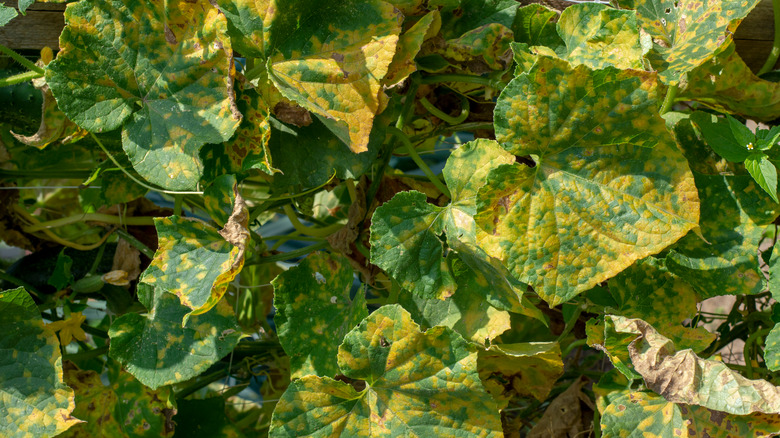Garden Trees, Shrubs & Vines
Robyn Hunt
If you’re looking for a chemical-free, eco-friendly, non-toxic, and highly affordable method for improving the health of your garden, vinegar shines through. It can be used as an herbicide as well as a fungicide and also can combat common plant diseases like downy mildew, which can wreak havoc on your vulnerable plant family. Vinegar’s usefulness extends beyond weed and disease control, making it a versatile tool in your garden arsenal. It can serve as a deterrent for unwanted garden visitors, like cats and deer. If sudden weather changes bring ants into your home and gardening space, you can use vinegar as a preventative measure from invading your gardening shed and-or home.
If you’re constantly running to the store to purchase new gardening tools because they keep on rusting, look no further than vinegar. It can help remove rust and corrosion and save you time and money. Overall, incorporating vinegar into your gardening routine offers a range of benefits. It provides an effective and natural solution for weed control, plant disease management, pest deterrence, and tool maintenance.
It’s questionable as an herbicide

Stefan_Sutka/Shutterstock
Vinegar is often praised as a potent herbicide, but it’s important to carefully evaluate any potential risks. This cleaning condiment can be pretty harsh on plants, ultimately causing them to die. This is due to the presence of acetic acid in vinegar, which has the ability to burn and dissolve plant cell membranes. Higher concentrations, above 20%, do provide better weed control, but can also cause damage to your perennials and vegetables. Solutions with 5% are not as effective while those with a 10 to 20% acidity level can slow weed growth and kill the plant, but not the roots. Case in point, vinegar is somewhat effective for small annual weeds, but the most reliable method for long-term weed control is to simply hand pull them.
What vinegar does excel at is working as an effective natural fungicide that can fight off plant diseases like downy mildew. The mixture of warm water and apple cider vinegar (with the mother) can be used on most plants, except for succulents and those with delicate leaves that are sensitive to acidity. By spraying it directly on the plant, you also risk harming beneficial garden bugs like bees, butterflies, and ladybugs.
It’s still useful in other ways
Dario Lo Presti/Shutterstock
Vinegar has a whole assortment of different uses in your garden besides a fungicide. If your garden has somehow been designated a neighborhood cat toilet, you can use straight or diluted vinegar. Simply spray it along the edges of your garden, fence posts, and even yard decor, paying careful attention to the areas that are frequented by prowlers. Vinegar also works well as an ant repellent and killer. The smell clears away the scent trail that ants use to communicate. You can create your own homemade ant spray and directly apply it to the ants and-or the area that they’ve been seen breaking and entering.
This acidic liquid can also lend a hand in keeping your gardening tools rust-free. You’ll want to allow your rusty tools to soak in a bath of undiluted vinegar from 12 to 24 hours, depending on the severity of the rust. Once you’ve removed them from their bath, gently wipe away the corrosion and store them in a cool and dry location. Repeat this process one to two times a month.